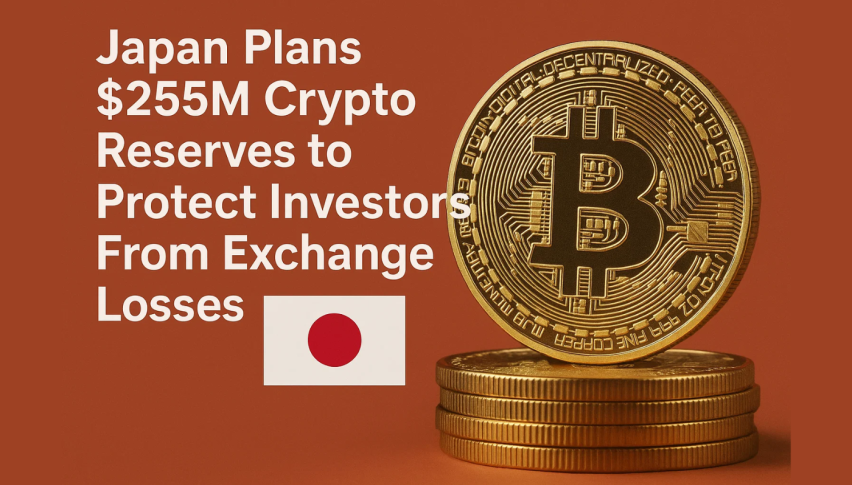Japan Plans $255M Crypto Reserves to Protect Investors From Exchange Losses
Japan is set to make a significant move to bolster investor safeguards in its digital asset market - now valued at a whopping $250 billion.

Quick overview
- Japan is introducing new regulations requiring digital asset exchanges to set aside dedicated funds to cover potential losses from hacks or operational failures.
- The proposed rules will ensure customer assets are kept separate from exchange funds and may involve independent administrators for asset recovery in case of insolvency.
- Recent high-profile hacks have prompted these reforms, highlighting that cold storage alone is insufficient for risk management in the crypto market.
- These changes aim to enhance investor confidence while aligning Japan's regulations with international standards in the digital asset space.
Japan is set to make a significant move to bolster investor safeguards in its digital asset market – now valued at a whopping $250 billion – by requiring exchanges to set aside dedicated funds to cover potential losses in the event of a hack or operational failure. According to a report from Nikkei, Japan’s Financial Services Agency (FSA) is preparing to draft new laws requiring these exchanges to set aside cash reserves to help cover any losses users may incur if something goes wrong.
Right now, Japanese exchanges tend to keep customers’ funds in cold wallets. That helps reduce the risk of theft, but doesn’t cover the costs of a breach or insolvency. The new rules would change all that. Exchanges would have to follow the same rules that apply to the securities industry – with reserves held in proportion to the size of their trading volumes and the level of risk that they’re taking on.
🚨BREAKING: 🇯🇵Japan to require crypto exchanges set up emergency reserves.
This helps prevent losses, keeping customer funds safe if an exchange fails. pic.twitter.com/kKQsmTzC93
— Coin Bureau (@coinbureau) November 25, 2025
Reserve Requirements and Insolvency Rules
The proposed rules draw heavily on Japan’s securities sector, where brokers must hold cash reserves ranging from 2 billion to 40 billion yen (about $12.7 million to $255 million) to cover any losses arising from dodgy or unfair practices. These reserve levels will now help inform the level of reserves exchanges in the crypto space must hold.
Key features of the new rules will be:
- Customer assets will remain totally separate from the exchange’s own funds.
- Independent administrators – such as court-appointed lawyers – could be brought in to recover customers’ assets if an exchange goes bust.
- Exchanges will also be allowed to use insurance to help ease the pressure on their balance sheets.
By putting these safeguards in place, Japan hopes to reduce its exposure to insolvency while maintaining the market.
Market Pressure Spurs Reform
High-profile hacks have been the catalyst for all of this regulatory change. Just recently, in May 2024, DMM Bitcoin lost around 48.2 billion yen in Bitcoin, and then just a few months later, Bybit disclosed a whopping $1.46 billion hack. These incidents have made it clear that cold storage alone is not enough to eliminate all systemic risks.
UPDATE 🚨
Japan just made it mandatory for crypto exchanges to keep emergency cash reserves!
If an exchange fails or gets hacked, customer funds stay safe! pic.twitter.com/upjd6kdGSt
— That Martini Guy ₿ (@MartiniGuyYT) November 25, 2025
The rest of the world is also moving in this direction. The EU’s MiCA framework and Hong Kong’s insurance-backed loss compensation schemes have shown the way – and Japan’s new reserve mandate will bring it more in line with those international standards.
For traders, these new rules will bring stronger safety nets – but it’s going to cost the exchanges more to implement them, in terms of compliance costs. They’ll need more capital set aside, robust audits, and possibly new operational structures. The regulators are also planning a whole lot more changes to the rules – including reclassifying certain tokens as financial products, applying insider trading laws, and adjusting tax rates to encourage participation under regulated conditions.
Japan’s approach signals the maturation of its crypto market, as the government seeks to balance growth with the need to introduce financial safeguards. This should give investors more confidence that the market will remain stable in the long term.
- Check out our free forex signals
- Follow the top economic events on FX Leaders economic calendar
- Trade better, discover more Forex Trading Strategies
- Open a FREE Trading Account
- Read our latest reviews on: Avatrade, Exness, HFM and XM


